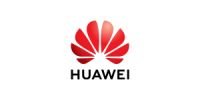Technology has the potential to be a positive, benevolent force – but regulation is hampering research and development
As societies transition to the new digital age, stakeholders find themselves grappling with common concerns around data protection and the ethical applications of new technology.
At the 2021 Times Higher Education Innovation and Impact Summit, industry leaders considered what tools might be required to ensure that innovation in the field is done in a way that is morally just and socially responsible.
Afke Schaart, senior vice-president for global government affairs at Huawei, spoke of her experiences working in Europe and Asia, and explained some of the cultural differences that can affect how innovation takes place.
Asked what governments could do to create the right environment for innovation to thrive, Schaart said: “For me, it’s all about keeping the ecosystem open.” China, where Huawei is based, has a highly competitive research and development ecosystem, she explained, which made for greater innovation.
Europe, meanwhile, employs very different regulatory systems, which Schaart feared was “harming innovation” by restricting activities and ideas, and “leading to a brain drain”.
“I think we lose a lot of great talent by not having a fantastic, innovative ecosystem in place in Europe,” she warned.
Recently, Huawei has found itself at the forefront of geopolitical tensions, which puts the company’s researchers and developers in a difficult position. “The Huawei success story really started in Europe when building the 3G infrastructure,” Schaart said. “Now, of course, we are in a completely different world. We are in the middle of a global tech war with the US, and that is, of course, very harmful for our business,” she noted.
“I think when you see the success of Huawei [in Asia], there’s a reason…why the US is afraid of what we are trying to bring,” Schaart said. “But not making us a part of the competition creates a duopoly in most countries, which is just harmful for competition. It’s not benefiting consumers worldwide.”
Global corporations also have a shared responsibility to develop green technology solutions. Schaart gave examples of community-based projects led by Huawei, including the introduction of solar panels to desert spaces in China, and a project that uses old mobile phones to record evidence of activity by illegal loggers in rainforests.
“The only solution to creating a more sustainable world is [by rethinking] our use of technology, and that’s where tech can be such a significant and positive force,” Schaart concluded.
Watch the session on demand above or on the THE Connect YouTube channel.
Find out more about Huawei and higher education.













































